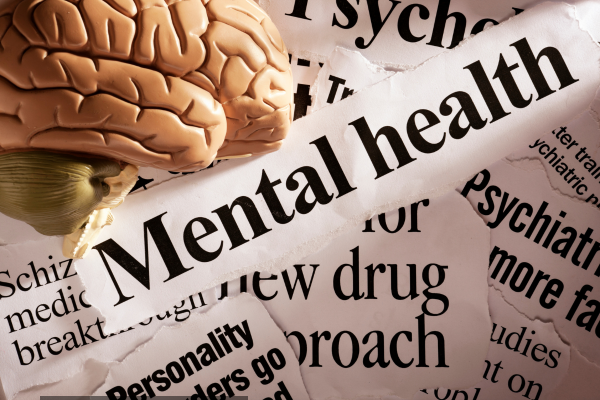Table of Contents
Introduction: Why Understanding the Truth Matters
The ongoing debate surrounding vaccines and autism is filled with misinformation. Many people believe that vaccines cause autism, a belief rooted in flawed studies and misunderstanding. This belief has led to dangerous consequences, including the resurgence of preventable diseases. Understanding the truth matters because public health relies on accurate information. With vaccination rates declining due to fear, it’s crucial to debunk these myths.
What causes autism?
Autism Spectrum Disorder (ASD) is a complex neurological and developmental condition. While the exact cause of autism is still not fully understood, research suggests that it is likely due to a combination of genetic, environmental, and possibly biological factors. Here’s a breakdown of these potential causes:
Genetic Factors
- Heritability: Autism has a strong genetic component. Studies show that if one identical twin is diagnosed with autism, the other has a 36-95% chance of also being diagnosed.
- Gene Mutations: Certain gene mutations have been associated with autism, though these mutations vary widely among individuals. Some of these mutations can be inherited, while others occur spontaneously.
- Family History: Families with a history of autism or other developmental disorders may have an increased likelihood of having a child with autism.
Environmental Factors
- Prenatal Influences: Environmental factors that affect the mother during pregnancy, such as exposure to certain chemicals, infections, or medications, might increase the risk of autism.
- Parental Age: Older parental age at the time of conception is associated with a higher risk of autism.
- Complications During Birth: Certain complications during pregnancy or birth, such as oxygen deprivation, have been linked to an increased risk of autism.
Biological Factors
- Brain Development: Abnormal brain development or differences in how neurons connect and communicate may contribute to autism. Some studies suggest that differences in certain brain regions, such as the amygdala and hippocampus, are linked to autism.
- Immune System Dysregulation: Some research has indicated that immune system irregularities may play a role in the development of autism, although this area is still being studied.
Interactions Between Factors
- Gene-Environment Interaction: It is likely that autism results from a complex interaction between genetic predispositions and environmental triggers. For example, a child with a genetic susceptibility to autism might develop the disorder if exposed to certain environmental factors during critical periods of brain development.
Myths and Misconceptions
- Vaccines: It’s important to note that extensive research has conclusively shown no link between vaccines and autism. This myth originated from a discredited study and has been debunked by numerous scientific studies.
In summary, autism is believed to be caused by a combination of genetic and environmental factors, with no single cause being responsible for the condition. The interplay between these factors can vary widely from one individual to another, contributing to the spectrum of autism’s presentation.
The Origin of the Vaccine-Autism Myth
The myth linking vaccines to autism began in 1998 with a study by Andrew Wakefield, which was later discredited. His research falsely claimed that the MMR (measles, mumps, and rubella) vaccine caused autism in children. However, several key points refute this claim:
- The study was retracted due to ethical violations and false data.
- Extensive research since then shows no link between vaccines and autism.
- Wakefield’s medical license was revoked for misconduct.
Scientific Evidence: What Do Studies Show?
Numerous studies have examined the potential link between vaccines and autism, all finding no connection. The largest studies involved:
- A 2014 study with over 1.25 million children, showing no increased risk of autism.
- A 2019 study with over 650,000 children, also finding no link.
- Research consistently shows that autism is likely due to genetic and environmental factors, not vaccines.
Herd Immunity: Protecting the Vulnerable
Herd immunity is essential for protecting those who cannot be vaccinated due to medical reasons. When a large percentage of the population is vaccinated:
- The spread of contagious diseases is reduced.
- Vulnerable groups, such as newborns and those with weakened immune systems, are protected.
- The community as a whole benefits from reduced disease outbreaks.
Autism: Understanding the Condition
Autism Spectrum Disorder (ASD) is a complex condition with a range of symptoms and severities. Key facts about autism include:
- It’s primarily influenced by genetic factors, not vaccines.
- Early diagnosis and intervention are crucial for better outcomes.
- Autism is not caused by a single factor, and each individual with autism is unique.
The Role of Media in Spreading Misinformation
Media plays a significant role in spreading myths about vaccines and autism. Sensational headlines and misinformation spread quickly, leading to:
- Increased fear and vaccine hesitancy among parents.
- The perpetuation of myths despite scientific evidence.
- Public health risks due to reduced vaccination rates.
The Importance of Vaccination in Public Health
Vaccination is one of the most effective public health interventions. Benefits include:
- Prevention of dangerous diseases like measles, mumps, and polio.
- Reduction in mortality rates, especially among children.
- Cost savings for healthcare systems by preventing outbreaks.
Addressing Vaccine Hesitancy: How to Have a Conversation
When discussing vaccines with someone who is hesitant, it’s important to:
- Listen to their concerns without judgment.
- Provide clear, factual information backed by scientific evidence.
- Encourage them to consult healthcare professionals for advice.
Conclusion: Moving Forward with Facts, Not Fear
It’s time to move forward with facts, not fear. The truth is clear: vaccines do not cause autism. Instead, they protect our communities from dangerous diseases. By dispelling these myths, we can ensure that everyone receives the protection they need. Public health depends on our commitment to truth and science.










